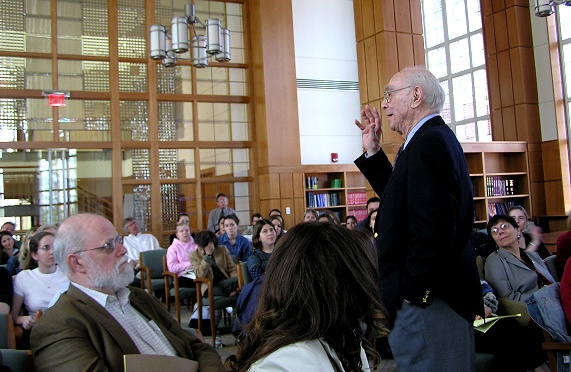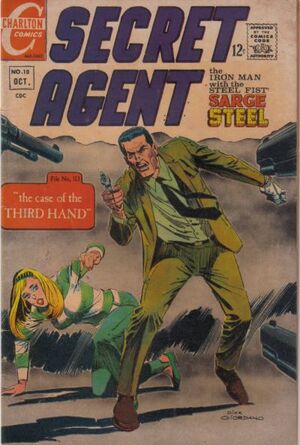 This review, which I wrote, appeared previously on a different Web site. If you want the link to the original, please leave a comment below and I will contact you directly. If you want me to view it without publishing your name, I'll gladly do that. I keep no list of readers, so I won't sell it anywhere.
This review, which I wrote, appeared previously on a different Web site. If you want the link to the original, please leave a comment below and I will contact you directly. If you want me to view it without publishing your name, I'll gladly do that. I keep no list of readers, so I won't sell it anywhere.If you're a current nonprofit board member and there's a horror section in your nonprofit library, you'll want to add Ron Mattocks'
Zone of Insolvency to it.
That's because Mattocks makes a convincing case that as many as a third of the nation's tax-exempt organizations are operating in a "zone of insolvency" — a financial state somewhere between solvency and total insolvency — and that it's just a matter of time before another nonprofit financial scandal emerges. According to Mattocks, who has more than thirty years' experience developing the financial strength of nonprofits, organizations operating in a zone of insolvency typically experience some combination of challenges, including dwindling cash reserves, increasing debt, an aging product mix and deferred maintenance, and recurring cash flow problems. Unfortunately, once an organization has entered the zone, there are only three ways out: a financial turnaround, merger, or dissolution.
To bolster his case, Mattocks provides summaries of some of the most notable nonprofit financial scandals of the past seventeen years, including William Aramony's misdeeds at the United Way of America and the Ponzi scheme that was the Foundation for New Era Philanthropy. But he also presents several success stories involving organizations that were able to turn things around — including the United Way of America.
His examples don't just involve financial scandals. Indeed, he offers several examples of organizations whose boards determined that, in the face of a changed or changing environment, the best course of action was to dissolve the organization while it was still providing important services. The National Alliance of Business, for instance, ceased operations in 2003 when its president and board determined that its mission had been accomplished. "The market had changed, new issues had emerged, and new organizations had risen to the challenge," Mattocks writes. "Funding sources had changed, and the organization experienced some net losses." Against that backdrop, the CEO helped convince the organization's stakeholders that its task was complete, to celebrate the organization's success, and to close its doors. Mattocks even provides a case study of Women in Community Service, which he headed for the final five months of its existence. Like NAB, WICS had decades of success to celebrate, but in the end it was unable to raise enough funds to continue operating and put itself out of business.
One lesson any board member should take from the book is that, when an organization is operating in a zone of insolvency, the decisions made by its executive director and board assume a different level of importance. As Mattocks puts it, a board's legal responsibilities expand when an organization is teetering between solvency and insolvency. In fact, in such situations boards need to become more engaged with management issues, and that usually increases the stress between a chief executive and his or her board (a relationship that can be strained even in the best of times). Less obvious, however, is how the zone of insolvency can alter the relationship between organization and donor. If, for example, an organization operating in the zone is offered a major gift with significant restrictions, it needs to make its financial situation crystal clear right up front — or risk violating the donor's legal rights.
To guard against that, Mattocks offers the following advice: "When governing in the zone of insolvency, a board should have special legal counsel to assure that no action benefits one party of interest while disadvantaging others." It's also absolutely critical, he writes, for key members of the board to have adequate directors and officers insurance when governing a financially distressed organization.
Like any good horror story,
Zone of Insolvency argues that, in the end, organizations can overcome adversity and return themselves to a strong financial footing. Yes, some organizations will stumble and fail. But in the end, strong, well-managed organizations will survive, and that's how it should be.
So before you start banging out that resignation letter or say no to an invitation to join a nonprofit board, read Mattocks' book. As they say in the movies, forewarned is forearmed — and will keep you from getting hurt.
 Earlier today I received the latest item from the Emerging Writers Network. It's a fairly long but interesting (at least I thought so) set of interviews with small press publishers. I'll admit that I've been looking for an agent lately rather than a publisher, so I am fairly uninformed about all of these people. But like I said, it's interesting. Why?
Earlier today I received the latest item from the Emerging Writers Network. It's a fairly long but interesting (at least I thought so) set of interviews with small press publishers. I'll admit that I've been looking for an agent lately rather than a publisher, so I am fairly uninformed about all of these people. But like I said, it's interesting. Why? 




